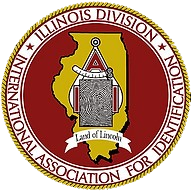
Attention Students!
Attention Students!
The Student Place is designed for those of you who are interested in getting into the field of Forensics, whether that be Crime Scene Investigations, Law Enforcement, or laboratory work. We hope this resource helps you in your search to become the next great investigative mind!
So you want to enter the field of Forensics but don’t know where to begin?
Entering the field of Forensic Science can be one of the most difficult things someone can do, however, it is not impossible. I have been in the Crime Scene Investigation field for 10 years. During those 10 years, I have worked for two large metro city agencies and now working at a smaller department. I have worked over 4,000 crime scenes to include anything from a simple theft to a Homicide/Officer Involved Shooting. Also, under my belt I have four years of teaching experience at the Metropolitan State University of Denver in Denver, Colorado where I work for the Department of Chemistry and teach Crime Scene Investigation classes. I am also currently the Vice President (2023-2024) year for the Rocky Mountain Division of the International Association for Identification.
During my time as a teacher, I have been able to watch students succeed their career goals and also fall flat onto their faces. As I said before, this career field is one of the most difficult fields to enter. There are right ways of doing things and then sometimes not so right things. This page is developed to explain that a little more in depth as well as provide you with resources that you may need to help with your career path.
So where do I begin? In my experience, I have learned that there are only a few things that someone needs to do to increase their chances of breaking into the Forensic Field. Let’s go over those below:
Degree Choice - When choosing a major in college, try to lean more towards the harder sciences while doing your Bachelors Degree. Now, is that the only way you will be able to get into this field? Absolutely not. Speaking from experience, I have a Bachelors and Masters degree in Sociology (with an emphasis in Crime and Deviance). So, it Science is not really your thing, all hope is not lost. BUT, you will make yourself more marketable for the Forensic Field if you choose a Hard Science.
After School - When people graduate with their degree from a 4-year institution, many of them are ready to break into the workforce immediately. If you are the few that choose to continue their education, then great! It is only up from here. But if you are just over school and want to work, you still need to continue putting in the work to get there.
All too many times I have watched students graduate and then expect to find a job in the CSI right out of school. They apply to several positions and don’t hear back or get an interview but they don’t land the job. What do they do after? They begin to give up.
You need something that makes you stand out amongst the other newly graduated students. This is where internships, networking, and organizations come in handy. You must show that you are serious about your career path, even if it means who continue working hard to reach that path.
Relocating - The third thing you should get used to us probably the more difficult of the three. Forensic Jobs don’t just grow on trees. If you live in a metropolitan area, your chances of landing a job in a specific area you want are very slim. Yes, I have witnessed local students getting local jobs, but they are the few lucky ones. In my experience, you have to be open for the possibility of relocating to get into the Forensic field. I am living proof as to how much more likely you are able to get that perfect dream job when you are open to moving away. Don’t worry, relocating does not have to be forever.
Please take this opportunity to think about where you are and then where you need to be to reach your career goals. It may take some strategic planning, but it is definitely not impossible. Also, please take this opportunity to check out below the resources that are available to you, such as: Forensic Related Programs and Organizations. You always want to expand your horizon, and in doing so: you can be unstoppable.
Popular Websites for Resources!
The world's most popular Crime Scene Investigation and Forensic Science website! 100% free to use. Resources from all around the globe brought together for the education you need to succeed.
NIJ is the research, development and evaluation agency of the U.S. Department of Justice.
Forensic Programs & Academies
University of California Riverside Extension
Riverside, California
Crime scene investigators (CSIs) work closely with law enforcement to ensure evidence is collected and processed correctly so the guilty are successfully prosecuted and justice is served. CSIs work at the crime scene, in labs, at the morgue, in police departments, and will likely be called to share their expertise in a courtroom. Start your career off right with top-notch expert instructors, hands-on experience, and real-life case studies so you can master all aspects of crime scene investigation.
West Virginia University Forensic Science Summer Camp
Morgantown, West Virginia
The Next Generation Forensic Science Initiative in collaboration with the Department of Forensic and Investigative Science at West Virginia University will be hosting its annual forensic science summer camp for high school students.
Through both conceptual and experiential learning students will acquire the practical knowledge and skills that forensic scientists utilize in their day-to-day casework. The Forensic Science Summer Camp will focus on the fundamentals as it relates to the topics covered.
CSI Academy of Florida
Alachua, Florida
The CSI Academy of Florida offers forensic science education tailored to every background and level of experience. Whether it’s members of law enforcement, criminal justice students, veterans, or civilians interested in forensic science, CSI Academy of Florida has classes suited to you.
Arizona
Arizona State University
Arizona State University’s forensic science degree teaches you how to interpret evidence and solve crimes using the latest science and technology. You’ll learn professional forensic science techniques and gain hands-on experience investigating crimes. The degree prepares you to work in crime labs at the local, state and federal levels.
Connecticut
University of New Haven
As a forensic science major at the University of New Haven, you will learn to use science and technology to uncover evidence that can "testify" in court and impact criminal or civil cases. You will sharpen your powers of observation and learn how to identify and interpret such evidence in one of the most respected forensic science programs in the country, a program enthusiastically endorsed by the Forensic Science Education Programs Accreditation Commission (FEPAC).
And, you will have the opportunity to study in the world-renowned Henry C. Lee Institute for Forensic Science. This state-of-the-art center – named after the legendary investigator – features working crime-scene labs and high-tech visual displays, and serves as a go-to resource for law enforcement agencies around the globe.
Forensic Programs
Florida
University of Central Florida
The Master of Science in Forensic Science program is designed to service the needs of both practicing professionals and full-time students who desire an advanced program of study in forensic science. The program is comprised of three concentrations: Forensic Analysis, Forensic Biochemistry and Forensic Professional.
University of Florida
The Forensic Science concentration is provided by UF’s College of Pharmacy. This degree program consists of 18 credits of required courses and 14 credits of electives covering a wide range of forensic disciplines.
Miami Dade College
School of Justice offers a 60-credit associate of science (AS) degree in crime scene technology.
Washington, D.C.
George Washington University
This program is available in a hybrid format and designed for people with a few years of professional experience as CSIs, lawyers, special agents, or other related occupations. It prepares students with specialized training in forensic pathology, homicide investigation, scrutiny of questioned documents, trace evidence analysis, and crime scene photography.
South Carolina
Horry Georgetown Technical College
This curriculum is designed for those in law enforcement who are looking to join special investigative units or CSI teams, combining courses such as case preparation, forensic science techniques, and CSI equipment with a 135-hour internship to apply skills students acquire.
Oklahoma
Oklahoma State University
The Master of Forensic Science - Forensic Investigative Sciences is the most flexible degree option within the School of Forensic Sciences, with most coursework being elective in nature. FIS faculty will work with students to build their degree plan based on their career aspirations. Coursework is all online.
West Virginia
West Virginia University
This major prepares students for positions as crime scene analysts, latent fingerprint examiners, firearms examiners, forensic photographers, evidence technicians, investigators, and law enforcement officers and agents. Working conditions are typically field and/or office-based rather than laboratory-based. Crime scene analysts are often part of major crime scene squads that collect and document evidence, but they rarely participate in the scientific examination of the evidence in the laboratory.
National and International Associations
American Academy of Forensic Sciences
Association of Forensic DNA Analysts and Admins
International Association for Identification
National Center of Forensic Science
International Assoc. of Bloodstain Pattern Analysts
American Board of Forensic Toxicology
North American Forensic Entomology Association
Society of Forensic Toxicologists
American Board of Forensic Anthropology
Association for Firearm and Toolmark Examiners
International Association of Forensic Toxicologists
American Board of Criminalistics
International Crime Scene Investigator’s Association
Arizona Identification Council
Connecticut IAI State Division
Illinois Division of the IAI
Kansas Division of the IAI
Mississippi Division of the IAI
New England Division of the IAI
MA, ME, NH, RI, VT
North Carolina IAI
Pacific Northwest Division of the IAI
AK, ALB, BC, ID, MT, OR, WA
Tennessee Division of the IAI
Wisconsin Division of the IAI
Regional and Local Associations
California State Division of the IAI
Florida Division of the IAI
Indiana Division of the IAI
Louisiana Division of the IAI
Missouri Division of the IAI
New Jersey State Division of the IAI
The Ohio Identification Officers Association
Rocky Mountain Division of the IAI
CO, NM, WY
Texas Division of the IAI
Chesapeake Bay Division of the IAI
DC, DE, MD, VA, WV
Georgia Division of the IAI
Iowa Division of the IAI
Minnesota Division of the IAI
Nebraska Division of the IAI
New York Division of the IAI
Oklahoma Division of the IAI
South Carolina Division of the IAI
Utah Division of the IAI
Upcoming Training Conferences
These are generally welcoming to students and are great places to take classes and network! Much of the time, you get a discount if you are a student!
North Carolina IAI Annual Training Conference
October 27th - 30th
Wrightsville Beach, NC

















































